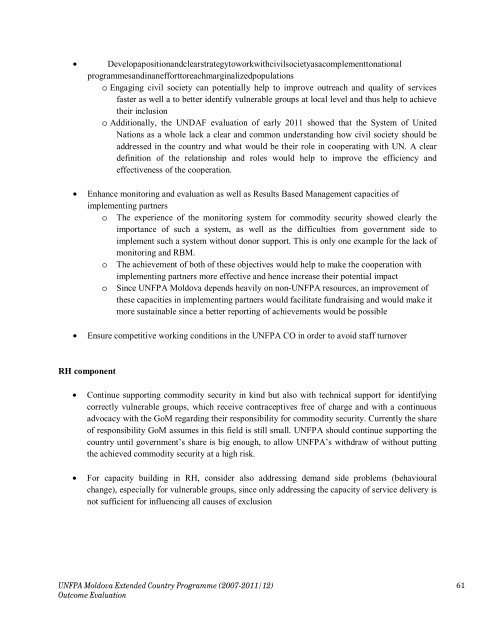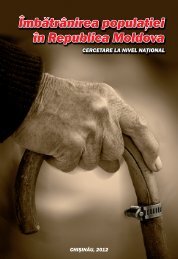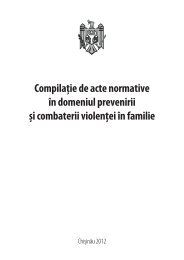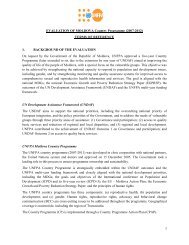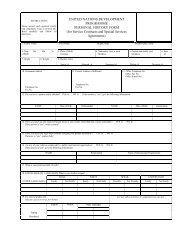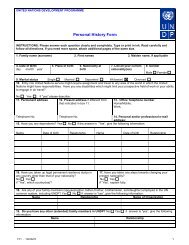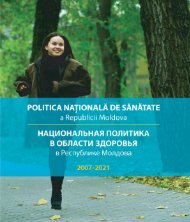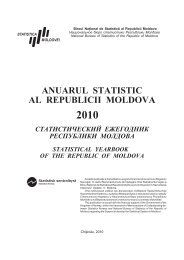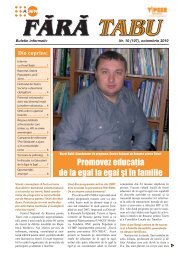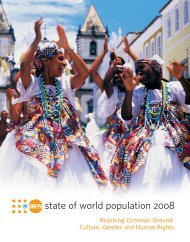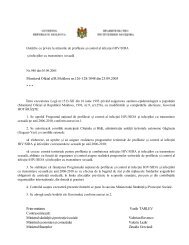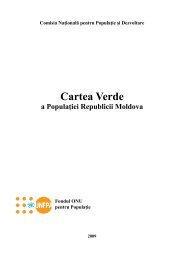Country Programme (2007-2011/2012) evaluation - UNFPA Moldova
Country Programme (2007-2011/2012) evaluation - UNFPA Moldova
Country Programme (2007-2011/2012) evaluation - UNFPA Moldova
You also want an ePaper? Increase the reach of your titles
YUMPU automatically turns print PDFs into web optimized ePapers that Google loves.
• Developapositionandclearstrategytoworkwithcivilsocietyasacomplementtonational<br />
programmesandinanefforttoreachmarginalizedpopulations<br />
o Engaging civil society can potentially help to improve outreach and quality of services<br />
faster as well a to better identify vulnerable groups at local level and thus help to achieve<br />
their inclusion<br />
o Additionally, the UNDAF <strong>evaluation</strong> of early <strong>2011</strong> showed that the System of United<br />
Nations as a whole lack a clear and common understanding how civil society should be<br />
addressed in the country and what would be their role in cooperating with UN. A clear<br />
definition of the relationship and roles would help to improve the efficiency and<br />
effectiveness of the cooperation.<br />
• Enhance monitoring and <strong>evaluation</strong> as well as Results Based Management capacities of<br />
implementing partners<br />
o The experience of the monitoring system for commodity security showed clearly the<br />
importance of such a system, as well as the difficulties from government side to<br />
implement such a system without donor support. This is only one example for the lack of<br />
monitoring and RBM.<br />
o The achievement of both of these objectives would help to make the cooperation with<br />
implementing partners more effective and hence increase their potential impact<br />
o Since <strong>UNFPA</strong> <strong>Moldova</strong> depends heavily on non-<strong>UNFPA</strong> resources, an improvement of<br />
these capacities in implementing partners would facilitate fundraising and would make it<br />
more sustainable since a better reporting of achievements would be possible<br />
• Ensure competitive working conditions in the <strong>UNFPA</strong> CO in order to avoid staff turnover<br />
RH component<br />
• Continue supporting commodity security in kind but also with technical support for identifying<br />
correctly vulnerable groups, which receive contraceptives free of charge and with a continuous<br />
advocacy with the GoM regarding their responsibility for commodity security. Currently the share<br />
of responsibility GoM assumes in this field is still small. <strong>UNFPA</strong> should continue supporting the<br />
country until government’s share is big enough, to allow <strong>UNFPA</strong>’s withdraw of without putting<br />
the achieved commodity security at a high risk.<br />
• For capacity building in RH, consider also addressing demand side problems (behavioural<br />
change), especially for vulnerable groups, since only addressing the capacity of service delivery is<br />
not sufficient for influencing all causes of exclusion<br />
<strong>UNFPA</strong> <strong>Moldova</strong> Extended <strong>Country</strong> <strong>Programme</strong> (<strong>2007</strong>-<strong>2011</strong>/12)<br />
Outcome Evaluation<br />
61


